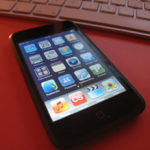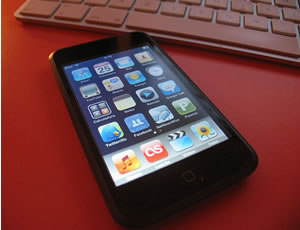
With small private campuses and large research universities alike teeming with iPhones, iPod Touches, BlackBerries, and other mobile devices, a college counseling company has highlighted five institutions in particular as the best landing spots for students attached to their gadgets.
IvyWise, a New York-based counseling company that released a list of the most environmentally friendly colleges in April, recently unveiled another list to help college applicants, this time focusing on schools that leverage the power of mobile devices to store and deliver recorded lectures, syllabi, homework, tests, and a host of other information that can be accessed any time, anywhere on campus.
The list, compiled by IvyWise counselors and released May 12, includes Seton Hill University in Greensburg, Pa., Stanford University, the University of Maryland’s College Park campus, Ohio State University, and the University of Missouri.
Notably absent from this list is Abilene Christian University in Texas, which just received $1.8 million from AT&T to build a studio for mobile learning experimentation.
Two of the universities in IvyWise’s list—Missouri and Seton Hill—attracted national attention this academic year when officials announced their latest education technology plans. The University of Missouri last fall required all incoming journalism students to have an iPod Touch or an iPhone so they could download material from iTunes University, a site run by Apple that includes thousands of educational videos.
Missouri officials noted that “at least 50 colleges and universities make use of iPods in their programs,” although it’s unclear how many of those schools require students to own the mobile devices. Students who couldn’t shell out a few hundred dollars for a new Apple product could pay for the device through financial aid, according to the university, because having an iPod Touch or iPhone was a journalism program requirement.
University officials said mobile devices such as the Microsoft Zune would let students listen to recorded lectures, but they added that the Zune is “not as capable as the iPod Touch beyond [its] use as an audio-video player.” BlackBerries also will “fulfill the minimum requirement” in the school’s journalism program, according to the university.
Seton Hill was among the first universities to embrace Apple’s eReader, the iPad, announcing in late March—before the iPad was released—that all incoming full-time freshmen would receive an iPad beginning in the fall 2010 semester. All other students will have a chance to opt into the iPad program, Seton Hill officials said.
The university “absorbed the cost of the iPad,” because putting Apple’s eReader devices in students’ hands marked a “strategic decision to shift resources and invest in technologies that optimize the students’ access to resources,” said Seton Hill President JoAnne Boyle.
Freshmen will pay a $500 technology fee starting in the fall 2010 semester, according to a university announcement.
Mary Ann Gawelek, Seton Hill’s provost and dean of faculty, said the university launched its iPad initiative because the device soon will give students and faculty members “immediate access to eTextbooks.”
“The iPad will lighten the backpacks of Seton Hill University students,” Boyle added.
Katherine Cohen, founder and CEO of IvyWise, said college students who use their mobile devices to listen to music, eMail friends and family, and conduct online research want to use the same device for academic purposes.
Using iPhones, for example, in an innovative way could be the difference between landing a highly prized freshman and seeing him or her commit to another campus, she said.
“School use of mobile technology can be attractive to students,” Cohen said. “It can represent that the school is forward thinking and may be inclined to develop new ways to better serve [its] students. [Also,] students who may have a career interest in technology … will, of course, be more interested in applying to a school with a proven track record in mobile technology.”
IvyWise recognized the University of Maryland on its top-five list for starting an iPhone development course in February. The course, taught by a former iPhone developer, is part of Maryland’s Mobility Initiative, a pilot program launched in fall 2008 that examines the impact of mobile technology on students’ educational experience. Two hundred and eighty Maryland students have been given an iPhone or iPod Touch as part of the Mobility Initiative, according to the school.
Cohen said the tech industry has kept a close eye on the university’s iPhone course, adding that “local and national technology companies have expressed interest in hiring students that have taken the class.”
Ohio State University was recognized in IvyWise’s list because its athletic program has a menu of iPhone applications that help students track sports scores, highlights, game schedules and lyrics to the university’s fight song. Cohen said Ohio State was included on the mobile college list in part because three computer science students built a “school spirit” application that lets students upload photos of fans spelling O-H-I-O in various locations.
Links:
University of Maryland Mobility Initiative
- Research: Social media has negative impact on academic performance - April 2, 2020
- Number 1: Social media has negative impact on academic performance - December 31, 2014
- 6 reasons campus networks must change - September 30, 2014


Comments are closed.